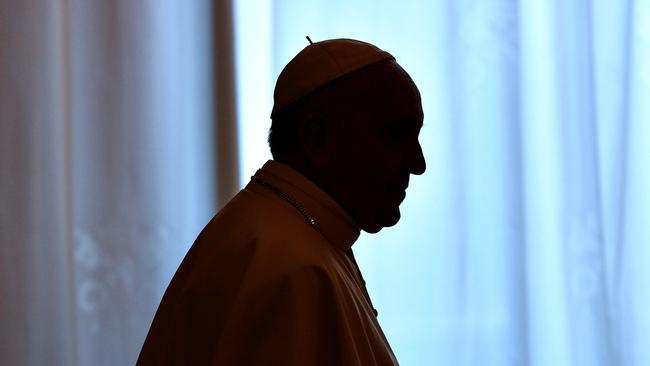
There will be many different assessments of Francis’s papacy. Many things to ponder. Many different and contradictory assessments will be made. There will be time enough for that important work. But first our concern is for Francis himself. No one can doubt that Francis gave his life to the service of God and the love of Jesus. A Jesuit priest for many decades, he took his vow of poverty seriously.
He has been pope for 12 years. For the 1.4 billion Catholics around the world, he is their religious leader, and the symbol of God’s authority in spiritual matters on earth. For hundreds of millions more Christians the pope always occupies a special place of leadership, and indeed billions of people around the world respect the pope.
In London recently for the Alliance for Responsible Citizenship conference I had the chance to talk to Anthony Fisher, the Catholic Archbishop of Sydney, about Francis. Fisher was at pains not to talk of the pope in the past tense. But the Francis papacy is clearly drawing to a close. Fisher, one of the most learned and important Catholic clerics in the world, offered me rare insights into Francis.
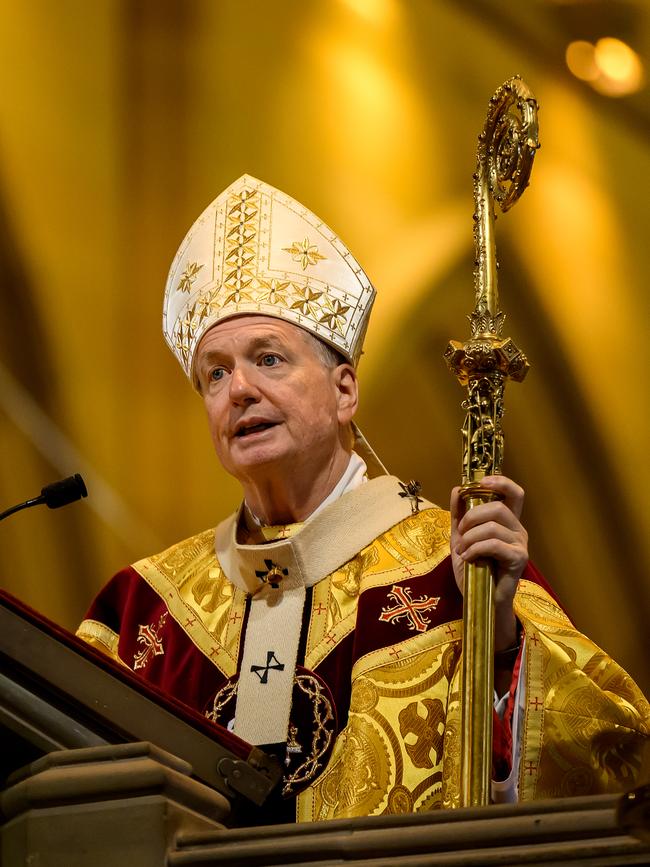
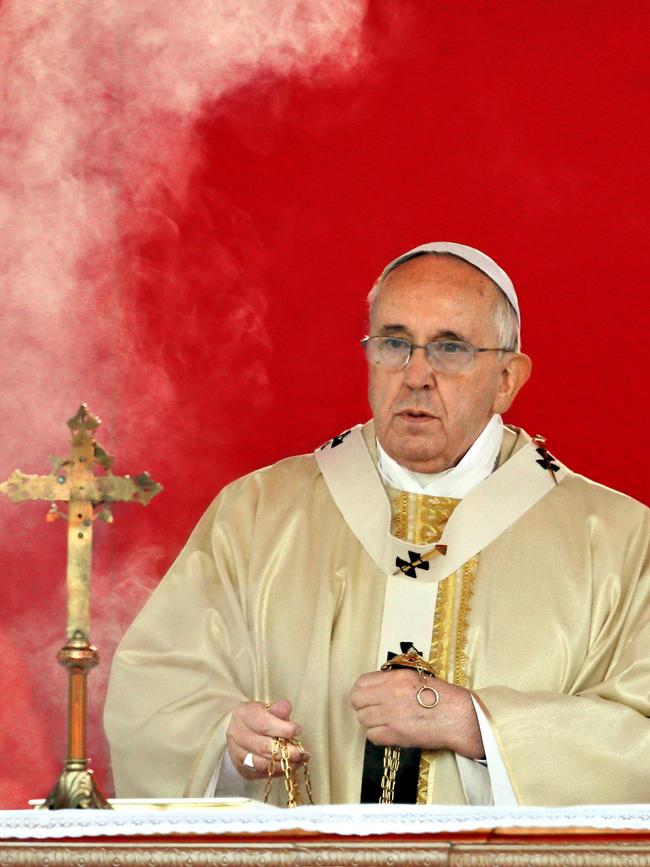
Francis is a pope of many firsts, Fisher told me. He’s the first non-European pope in a thousand years. He’s the first pope from the southern hemisphere, the first Latin American and the first Jesuit.
“That indicated that he would be something of a disrupter, something different,” Fisher told me.
“He was only really known in Latin America. He hadn’t worked in the Roman curia. He hadn’t been a big traveller. The first signal of how he would be different was when he chose his papal name, Francis. It was a name taken from a saint, Francis of Assisi, who wasn’t a priest, let alone a pope. That name was a signal of humility, mercy, love for the poor, love for creation.
“Francis did live true to that in his papacy, for example stopping his car to get out and meet a handicapped man. Every Holy Thursday he would go to a prison to wash the feet of the prisoners. He washed the feet of men and women, even before he changed the church law to allow that. He didn’t care what religion they were.”
Francis is not a natural genius and force of nature in public leadership in the way Pope John Paul II had been, but, Fisher points out, he has a great understanding of the telling power of a symbol, especially a symbol of papal behaviour. Thus there were images of him beamed around the world carrying his own bag, or paying his own hotel bill.
“Mercy was a theme of his, again and again,” Fisher recalls. In 2015 Francis proclaimed a year of mercy. He took church law actions to make the sacrament of confession easier. There are some sins that formerly had to be forgiven by a bishop, or with permission from Rome. Francis moved to make all sins forgivable in confession. Not so many Catholics practice confession these days, telling their sins confidentially to a priest who offers them the forgiveness of God. But for those who do, Francis’s reforms were important.
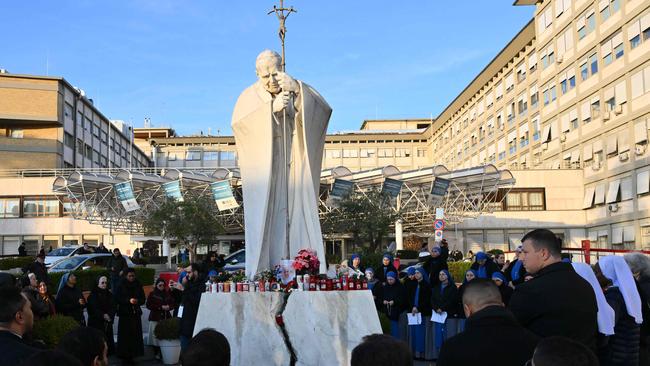
“We heard the theme of mercy again and again in the Pope’s homilies and in his encyclicals,” Fisher says. An encyclical is a formal letter by a pope to the church at large for the purpose of teaching faith and morals. The theme of mercy was strong in Fancis’s most recent encyclical on the subject of the sacred heart of Jesus.
Francis encouraged, and was somewhat enraptured by, the idea of “synodality”. This, as Fisher says, is a mysterious if not meaningless term even for most Catholics. It really means consultation.
“Synodality was a big theme of his later years,” Fisher says.
“It came out of his Jesuit experience. The idea is that the way we discern the path forward is to stop and listen to each other. This was very important in a time of polarisation in the church. If you stop and listen you might actually hear the voice of God in the other person.”
Fisher is not making criticisms of Francis, but he explains some of the different reactions to synodality, its strengths and weaknesses: “Some would say that that methodology brings greater unity, but not necessarily theological precision. It’s hard to get clarity if there’s no real debate. Some of his critics would say that both in synodality, and in his own teachings, there was ambiguity. You could sense where Francis wanted to lean, but he wasn’t always willing to say it.”
It was both the good fortune, and yet a particular burden, for Francis to assume the papacy in the wake of two authentic giants of Catholic history.
Fisher expands on this thought: “In some ways he suffered forever in the shadow of Pope John Paul II and Pope Benedict XVI. In a thousand years time people will look back and say that John Paul II was the greatest pope in a millennium, and Benedict will be recognised as a Father of the Church, one of the greatest teachers the Church has known.”
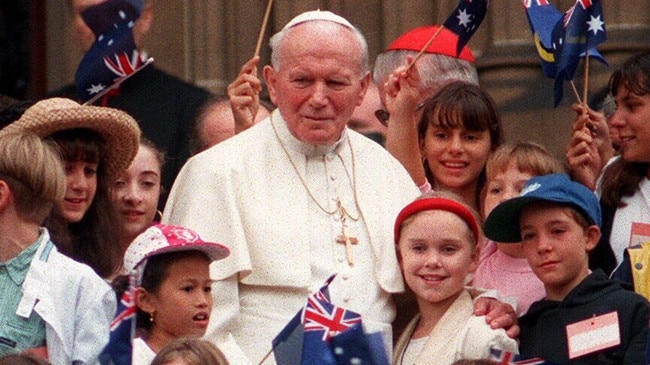
The status of Father of the Church, like the similar Doctor of the Church, is a status given to the greatest theological teachers in the history of the Church. Benedict’s writings, especially his biography of Jesus, but many other books and essays as well, are the most compelling theological papal writings for hundreds of years, while John Paul II was the most dynamic and effective pope, as Fisher suggests, for many hundreds of years.
Says Fisher: “Francis chose not to present himself in the same way as those two men had, to offer a different flavour. It was a less intellectual papacy. The three great transcendentals (everlasting metaphysical values) are truth, beauty and goodness. You could associate JPII particularly with truth, Benedict with beauty (in liturgy and teaching) and Francis with goodness.
“The thing about Francis is that a lot of people not in the church, or only tangentially connected to it, or just hanging on, liked him. They felt he was there for people on the edge. He was always welcoming. He was not too demanding, so they didn’t feel they had failed too badly.”
I left London, as it happens, for an old redoubt of Catholic Europe, Porto, in northern Portugal. One day I set out from my hotel in clear weather and got caught in a torrent of rain. A local man, about my own age, insisted on giving me his own umbrella. No, no I protested. But he wouldn’t take no for an answer. This is a small matter. Being caught in the rain in Porto is assuredly a first world problem. Yet that instinctive graciousness on the part of this stranger, with whom I shared not a word of common language, surely followed Francis’ injunction to show the face of Christ to one another. Indeed, Francis would have been proud of him.


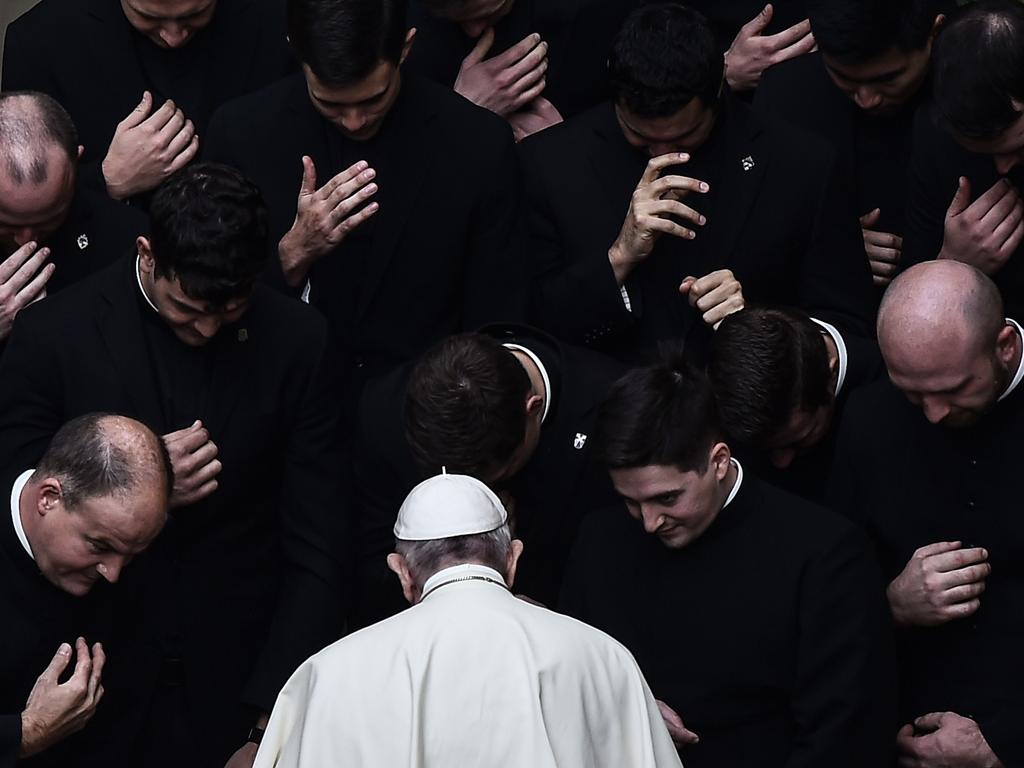



Pope Francis is gravely ill. He is 88 years old and many years ago already lost part of one lung. Over the last few years, he’s been increasingly frail. A good man, a man of God, is coming to the end of his journey. Every decent human being will wish him recovery, but if he is coming to the end, we wish his journey homeward will be welcomed by God’s tender mercy.